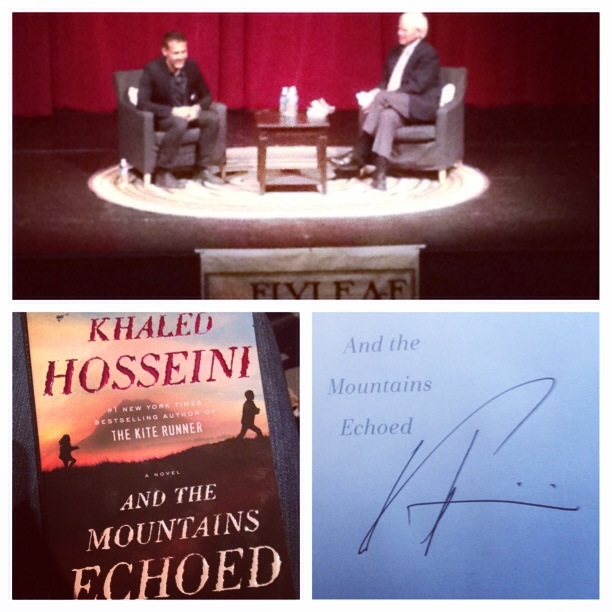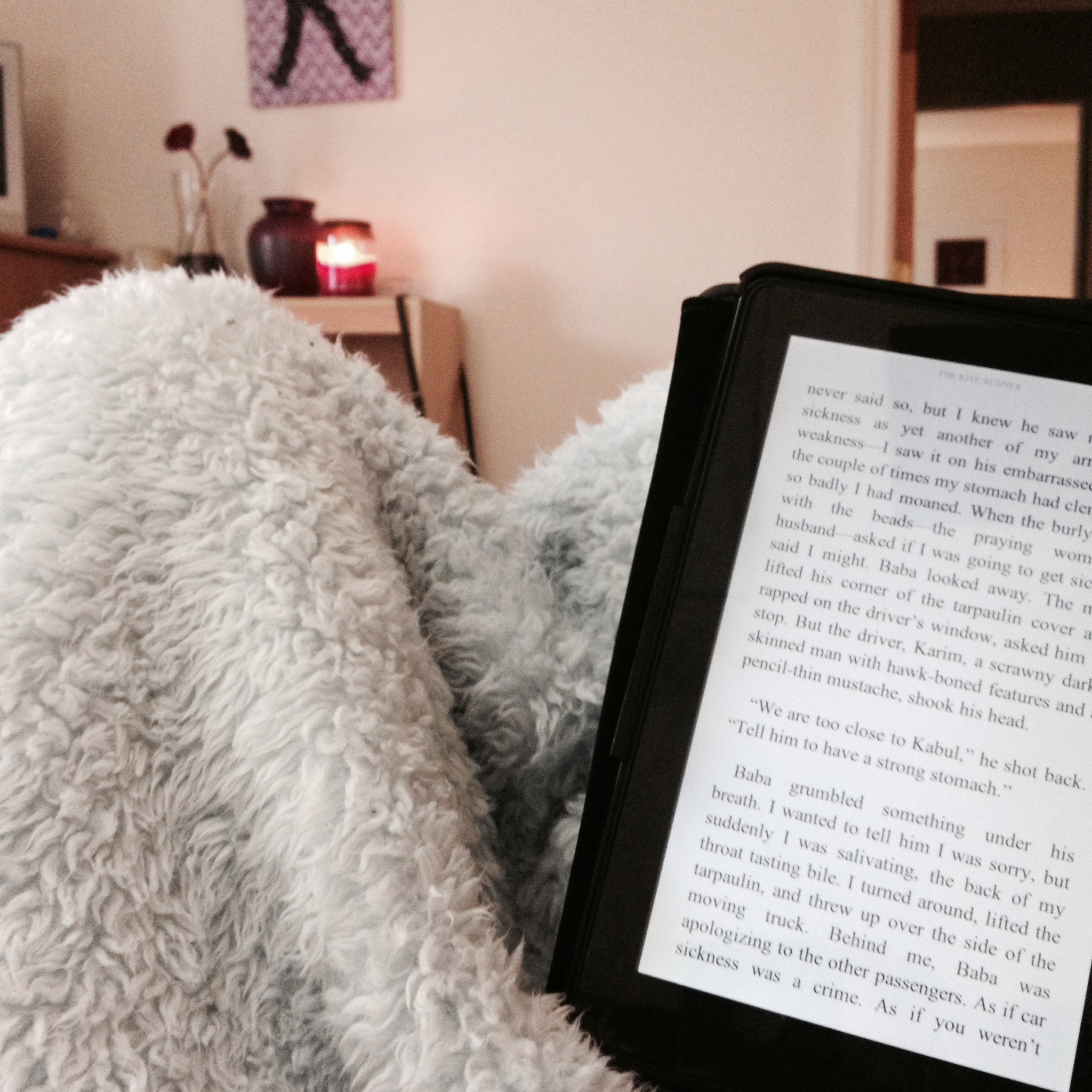Review
I finished this book just in time for the interview and book signing with Khaled Hosseini in Chapel Hill (the interview was amazing; check out more details below!).
This book is eye opening to what it was like to live in Afghanistan during the reign of the Taliban. I never imagined growing up in Afghanistan would be like this. I don't think my mind had the capacity to imagine life in Afghanistan during those difficult decades, or the pain and suffering of innocent civilians living in Afghanistan, until I saw it through the eyes of Amir. Hosseini admits in his interview that his prose is far from flowery, and borderline utilitarian. This book is humbling. I enjoyed learning about Afghani culture through a character who seemed so real to me. The beauty of this book is that I see myself in Amir. I understand the dissonance he feels over wronging someone and I felt his desire to make things right.
Spoiler ahead! Scroll down below the line for more on Hosseini's interview
“What’s going to happen to you, you say? All those years, that’s what I was trying to teach you, how to never have to ask that question.” -Baba
Perhaps Baba's impassiveness towards Amir is because he is scared he has failed as a father- failed to teach his son not to be like him. He sees himself in Amir and it angers him that Hassan, the product of his infidelity, is less like him than Amir is.
When Amir and Baba move to America, my heart swells for Baba’s newfound love and pride for his son. Finally Baba’s icy attitude towards Amir has thawed, and he has a newfound modesty since the move to America, their relationship is warming up, and then they hit me with THIS? He has cancer? A lot of big things like this are happening in Amir’s life at this point in the book- a lot of important things. But I don’t feel like the pace of the book is matching the intensity of the events in his life. I want to see more examples of Baba showing his love to Amir. And I don’t love Soraya. How can I? I know nothing about her. I just wish there was more character development during this part of the book.
The biggest takeaway I got from the interview with Khaled Hosseini was that he doesn’t have a “lesson” in mind when writing a book. He just writes and the characters come to him and develop in his mind. But why then do I feel as though Sohrab’s accident and subsequent silence was added as an afterthought? Perhaps this part of the book was added to prove a point that no matter what you do to redeem yourself, that doesn't necessarily mean a happy ending will follow.
"And that, I believe, is what true redemption is, Amir jan, when guilt leads to good." -Rahim Khan
Maybe we can all learn a little bit from Baba.
Interview & Book Signing with Khaled Hosseini

“Ever since I was a little boy, I have had this voice, in my head -and not in a psychotic way- that I’ve always felt compelled to let speak once in a while. From the time I was a boy, I can’t remember a time when I didn’t have this voice- first in Farsi, then in French, and then in English when I moved to the US when I was 15. And over time there is a certain rhythm, tempo, cadence, and quality of that voice that I’ve become very familiar with and very comfortable with. I can sit and try to write like somebody else, but eventually what happens is I step back to my own voice. And that is one way I know how to communicate. My prose is far from flowery, and borderline utilitarian, but whatever goals it sets for itself, I think it does a good job at accomplishing those things. There is a clarity in my prose that I think people like, a directness, talking about a given experience, that people appreciate. It is something that I noticed when I was very young.” -Khaled Hosseini
I'm glad I got to hear Hosseini speak about the three books he's written. He spoke about how he never starts out with a theme in mind for his books. He just starts writing, and lets the theme or lesson develop naturally. Once he takes a step back and realizes what the message of his work is becoming, only then does he go back and make certain points stronger to highlight that message.
Interesting fact: he does math in his head in Farsi, but he can no longer write prose in Farsi.
Check out his newest book, And the Mountains Echoed, I can't wait to read my copy!


 1
1















